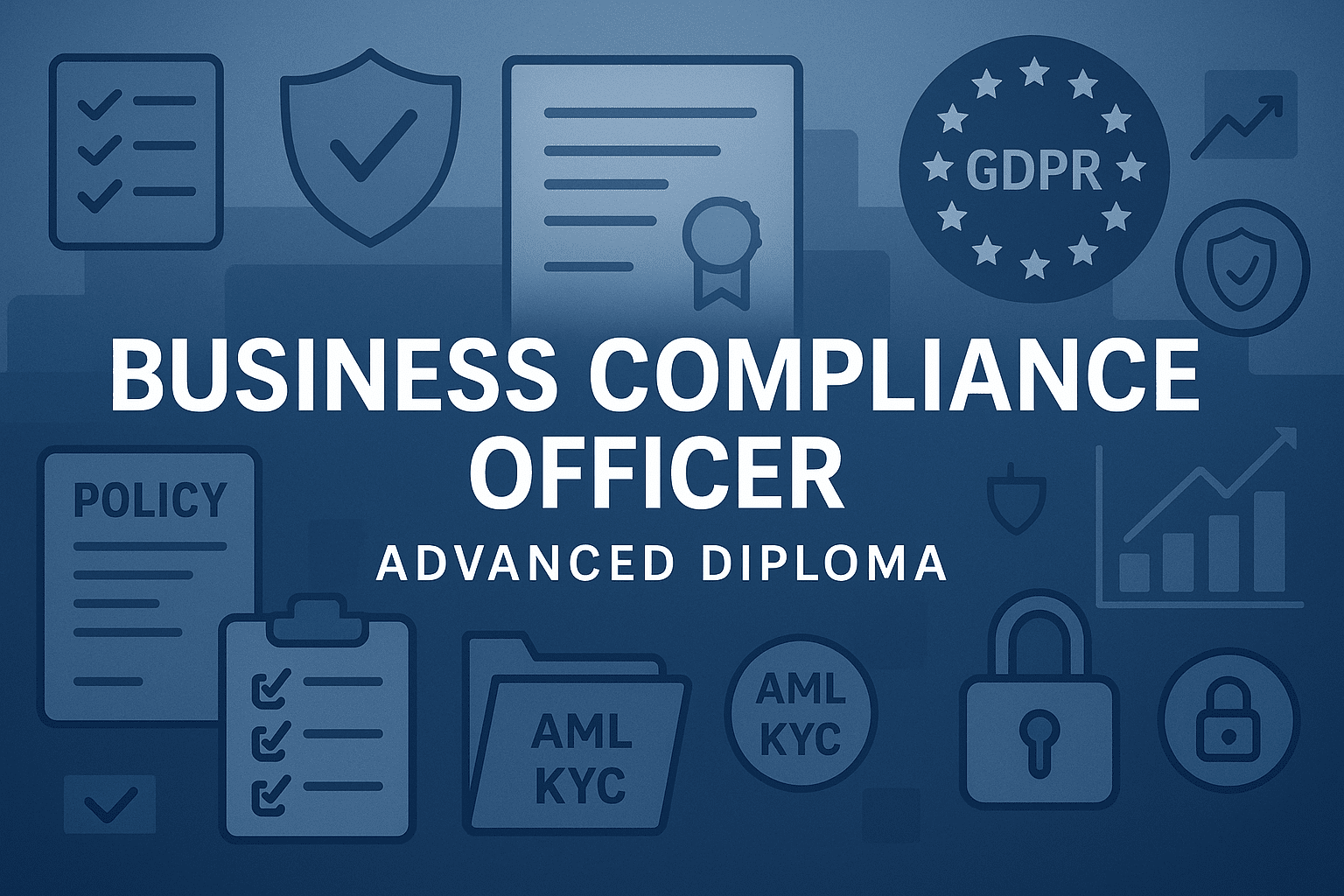Course Features
Price
Study Method
Online | Self-paced
Course Format
Reading Material - PDF, article
Duration
15 minutes
Qualification
No formal qualification
Certificate
At completion
Additional info
Coming soon
- Share
Overview
The "CIPD: Strategic HR Management & Organisational Development" course is designed to deepen learners' understanding of how human resource management operates as a strategic function within modern organisations. Starting with an introduction to the core concepts of strategic HRM, the course explores how HR has evolved from administrative support to a pivotal driver of organisational strategy. Learners gain insight into the essential competencies needed to become effective strategic HR leaders who contribute meaningfully to business success.
Workforce planning is a key focus, equipping learners with techniques for predicting future talent needs, developing succession plans, and integrating diversity and inclusion as vital assets for sustainable growth. Students learn to align resourcing strategies with long-term organisational objectives and ensure that talent management initiatives are forward-thinking and resilient.
The course delves into the fundamentals of organisational development (OD), explaining key theories and models of change management. Learners discover how HR can spearhead OD interventions to build adaptable, innovative, and high-performance cultures. Strategies for managing cultural change, overcoming resistance, and embedding OD practices across organisations are also covered, providing learners with real-world applications of theory.
HR metrics and analytics are positioned as critical tools for strategic decision-making. Students explore how to use data to drive HR strategy, implement predictive analytics, and create compelling reports that influence senior leadership. Emphasis is placed on linking HR data to key performance indicators and using workforce insights to anticipate challenges and shape proactive strategies.
Employee engagement and retention strategies form another pillar of the course. Learners study how to cultivate high-performance cultures, design effective reward and recognition systems, and implement retention initiatives that align with organisational goals. Best practices for sustaining motivation, commitment, and talent pipelines are integrated into the learning journey.
Managing strategic change is tackled in detail, covering change management theories, HR’s leadership role in transformational initiatives, and techniques for communicating change effectively across all organisational levels. Learners develop the skills to lead successful change programmes and measure their impact on organisational performance.
Strategic leadership is explored as a driving force behind successful HRM. Learners analyse leadership styles, methods for building leadership capacity, and approaches to developing future leaders through executive coaching and targeted development initiatives. Challenges associated with strategic leadership are discussed, along with solutions for navigating complex organisational landscapes.
The course concludes with a forward-looking view of contemporary trends in HRM, including the impact of technology, artificial intelligence, globalisation, sustainability, and corporate social responsibility. Students are encouraged to future-proof their careers by understanding emerging skills and adapting to the changing demands of strategic HR leadership.
Who is this course for?
The "CIPD: Strategic HR Management & Organisational Development" course is designed to deepen learners' understanding of how human resource management operates as a strategic function within modern organisations. Starting with an introduction to the core concepts of strategic HRM, the course explores how HR has evolved from administrative support to a pivotal driver of organisational strategy. Learners gain insight into the essential competencies needed to become effective strategic HR leaders who contribute meaningfully to business success.
Workforce planning is a key focus, equipping learners with techniques for predicting future talent needs, developing succession plans, and integrating diversity and inclusion as vital assets for sustainable growth. Students learn to align resourcing strategies with long-term organisational objectives and ensure that talent management initiatives are forward-thinking and resilient.
The course delves into the fundamentals of organisational development (OD), explaining key theories and models of change management. Learners discover how HR can spearhead OD interventions to build adaptable, innovative, and high-performance cultures. Strategies for managing cultural change, overcoming resistance, and embedding OD practices across organisations are also covered, providing learners with real-world applications of theory.
HR metrics and analytics are positioned as critical tools for strategic decision-making. Students explore how to use data to drive HR strategy, implement predictive analytics, and create compelling reports that influence senior leadership. Emphasis is placed on linking HR data to key performance indicators and using workforce insights to anticipate challenges and shape proactive strategies.
Employee engagement and retention strategies form another pillar of the course. Learners study how to cultivate high-performance cultures, design effective reward and recognition systems, and implement retention initiatives that align with organisational goals. Best practices for sustaining motivation, commitment, and talent pipelines are integrated into the learning journey.
Managing strategic change is tackled in detail, covering change management theories, HR’s leadership role in transformational initiatives, and techniques for communicating change effectively across all organisational levels. Learners develop the skills to lead successful change programmes and measure their impact on organisational performance.
Strategic leadership is explored as a driving force behind successful HRM. Learners analyse leadership styles, methods for building leadership capacity, and approaches to developing future leaders through executive coaching and targeted development initiatives. Challenges associated with strategic leadership are discussed, along with solutions for navigating complex organisational landscapes.
The course concludes with a forward-looking view of contemporary trends in HRM, including the impact of technology, artificial intelligence, globalisation, sustainability, and corporate social responsibility. Students are encouraged to future-proof their careers by understanding emerging skills and adapting to the changing demands of strategic HR leadership.
Requirements
The "CIPD: Strategic HR Management & Organisational Development" course is designed to deepen learners' understanding of how human resource management operates as a strategic function within modern organisations. Starting with an introduction to the core concepts of strategic HRM, the course explores how HR has evolved from administrative support to a pivotal driver of organisational strategy. Learners gain insight into the essential competencies needed to become effective strategic HR leaders who contribute meaningfully to business success.
Workforce planning is a key focus, equipping learners with techniques for predicting future talent needs, developing succession plans, and integrating diversity and inclusion as vital assets for sustainable growth. Students learn to align resourcing strategies with long-term organisational objectives and ensure that talent management initiatives are forward-thinking and resilient.
The course delves into the fundamentals of organisational development (OD), explaining key theories and models of change management. Learners discover how HR can spearhead OD interventions to build adaptable, innovative, and high-performance cultures. Strategies for managing cultural change, overcoming resistance, and embedding OD practices across organisations are also covered, providing learners with real-world applications of theory.
HR metrics and analytics are positioned as critical tools for strategic decision-making. Students explore how to use data to drive HR strategy, implement predictive analytics, and create compelling reports that influence senior leadership. Emphasis is placed on linking HR data to key performance indicators and using workforce insights to anticipate challenges and shape proactive strategies.
Employee engagement and retention strategies form another pillar of the course. Learners study how to cultivate high-performance cultures, design effective reward and recognition systems, and implement retention initiatives that align with organisational goals. Best practices for sustaining motivation, commitment, and talent pipelines are integrated into the learning journey.
Managing strategic change is tackled in detail, covering change management theories, HR’s leadership role in transformational initiatives, and techniques for communicating change effectively across all organisational levels. Learners develop the skills to lead successful change programmes and measure their impact on organisational performance.
Strategic leadership is explored as a driving force behind successful HRM. Learners analyse leadership styles, methods for building leadership capacity, and approaches to developing future leaders through executive coaching and targeted development initiatives. Challenges associated with strategic leadership are discussed, along with solutions for navigating complex organisational landscapes.
The course concludes with a forward-looking view of contemporary trends in HRM, including the impact of technology, artificial intelligence, globalisation, sustainability, and corporate social responsibility. Students are encouraged to future-proof their careers by understanding emerging skills and adapting to the changing demands of strategic HR leadership.
Career path
The "CIPD: Strategic HR Management & Organisational Development" course is designed to deepen learners' understanding of how human resource management operates as a strategic function within modern organisations. Starting with an introduction to the core concepts of strategic HRM, the course explores how HR has evolved from administrative support to a pivotal driver of organisational strategy. Learners gain insight into the essential competencies needed to become effective strategic HR leaders who contribute meaningfully to business success.
Workforce planning is a key focus, equipping learners with techniques for predicting future talent needs, developing succession plans, and integrating diversity and inclusion as vital assets for sustainable growth. Students learn to align resourcing strategies with long-term organisational objectives and ensure that talent management initiatives are forward-thinking and resilient.
The course delves into the fundamentals of organisational development (OD), explaining key theories and models of change management. Learners discover how HR can spearhead OD interventions to build adaptable, innovative, and high-performance cultures. Strategies for managing cultural change, overcoming resistance, and embedding OD practices across organisations are also covered, providing learners with real-world applications of theory.
HR metrics and analytics are positioned as critical tools for strategic decision-making. Students explore how to use data to drive HR strategy, implement predictive analytics, and create compelling reports that influence senior leadership. Emphasis is placed on linking HR data to key performance indicators and using workforce insights to anticipate challenges and shape proactive strategies.
Employee engagement and retention strategies form another pillar of the course. Learners study how to cultivate high-performance cultures, design effective reward and recognition systems, and implement retention initiatives that align with organisational goals. Best practices for sustaining motivation, commitment, and talent pipelines are integrated into the learning journey.
Managing strategic change is tackled in detail, covering change management theories, HR’s leadership role in transformational initiatives, and techniques for communicating change effectively across all organisational levels. Learners develop the skills to lead successful change programmes and measure their impact on organisational performance.
Strategic leadership is explored as a driving force behind successful HRM. Learners analyse leadership styles, methods for building leadership capacity, and approaches to developing future leaders through executive coaching and targeted development initiatives. Challenges associated with strategic leadership are discussed, along with solutions for navigating complex organisational landscapes.
The course concludes with a forward-looking view of contemporary trends in HRM, including the impact of technology, artificial intelligence, globalisation, sustainability, and corporate social responsibility. Students are encouraged to future-proof their careers by understanding emerging skills and adapting to the changing demands of strategic HR leadership.
-
-
- Premium Certificate 00:15:00

No Reviews found for this course.
Is this certificate recognized?
Yes, our premium certificate and transcript are widely recognized and accepted by embassies worldwide, particularly by the UK embassy. This adds credibility to your qualification and enhances its value for professional and academic purposes.
I am a beginner. Is this course suitable for me?
Yes, this course is designed for learners of all levels, including beginners. The content is structured to provide step-by-step guidance, ensuring that even those with no prior experience can follow along and gain valuable knowledge.
I am a professional. Is this course suitable for me?
Yes, professionals will also benefit from this course. It covers advanced concepts, practical applications, and industry insights that can help enhance existing skills and knowledge. Whether you are looking to refine your expertise or expand your qualifications, this course provides valuable learning.
Does this course have an expiry date?
No, you have lifetime access to the course. Once enrolled, you can revisit the materials at any time as long as the course remains available. Additionally, we regularly update our content to ensure it stays relevant and up to date.
How do I claim my free certificate?
I trust you’re in good health. Your free certificate can be located in the Achievement section. The option to purchase a CPD certificate is available but entirely optional, and you may choose to skip it. Please be aware that it’s crucial to click the “Complete” button to ensure the certificate is generated, as this process is entirely automated.
Does this course have assessments and assignments?
Yes, the course includes both assessments and assignments. Your final marks will be determined by a combination of 20% from assignments and 80% from assessments. These evaluations are designed to test your understanding and ensure you have grasped the key concepts effectively.
Is this course accredited?
We are a recognized course provider with CPD, UKRLP, and AOHT membership. The logos of these accreditation bodies will be featured on your premium certificate and transcript, ensuring credibility and professional recognition.
Will I receive a certificate upon completion?
Yes, you will receive a free digital certificate automatically once you complete the course. If you would like a premium CPD-accredited certificate, either in digital or physical format, you can upgrade for a small fee.
Course Features
Price
Study Method
Online | Self-paced
Course Format
Reading Material - PDF, article
Duration
15 minutes
Qualification
No formal qualification
Certificate
At completion
Additional info
Coming soon
- Share
Finance for non finance managers Level 3 Advanced Diploma
Course Line239₩971,509.28Original price was: ₩971,509.28.₩29,720.25Current price is: ₩29,720.25.Introduction to Sports Coaching Level 2
Course Line237₩971,509.28Original price was: ₩971,509.28.₩29,720.25Current price is: ₩29,720.25.Business Compliance Officer Advanced Diploma
Course Line239₩971,509.28Original price was: ₩971,509.28.₩29,720.25Current price is: ₩29,720.25.





